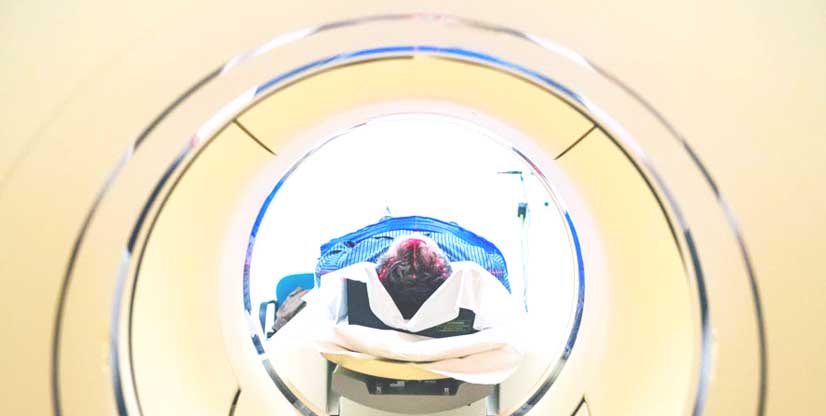Clinics & services
Bone mineral density scans
Bone mineral density scans
- Home
- Clinics & services
- Scans & tests
- Bone mineral density scans
What we do
Bone mineral density (BMD) scans are a special kind of X-ray scan used to measure how much calcium and other minerals are in a section of bone.
You may be having a bone mineral density (BMD) scan to find out if you have osteoporosis. Osteoporosis is a common disease that causes your bones to become fragile and more likely to break.
You may also have a BMD scan if you have another medical conditions that may weaken your bones.
We also do BMD scans to help in research studies. We work closely with researchers from The University of Melbourne.
What to expect
BMD scans are painless and take around 15-20 minutes.
We usually scan your lower spine and hip. Sometimes we also scan your forearm and whole body. Our scanners can scan anywhere on your body, if needed.
You may need to change into a gown for the scan. You lie on your back on a padded table and the arm of the scanner will move slowly over top of you. You will need to lie still for five minutes so we can get the necessary scans.
A small amount of X-rays are used. The radiation dose you will receive is about the amount you would get from walking around Melbourne for a couple of hours.
We will send your results to your doctor. This takes about a week.
They will discuss the results with you as this test is only a part of the information that your doctor uses to form a plan for your treatment.
Preparing for your scan
You do not need to fast for a BMD scan. You will need to remove all metal objects from the areas being scanned prior to getting on the table, including body piercing.
You can't have a BMD scan if you've had a CT scan or x-ray involving an injection or drink in the two weeks before the scan. You must not have had a Nuclear Medicine scan in the two days before your Bone Density scan.
What to bring
When you come to hospital for your appointment, you need to bring:
- Medicare card
- Health care card/concession card (if applicable)
- Private health insurance details (if applicable/if you want to use it)
- Adverse drug alert card (if you have one)
- X-ray films, scans, ultrasounds or any other test results or reports
- Medicines you need to take while you are here
- List of medicines you are currently taking (or the boxes) including herbal supplements and vitamins
- Glasses, hearing aid, walking frame (if applicable)
- Your blood glucose meter and log book (if applicable)
Related services
Referrals
For patients
You need a referral from your GP, specialist or health care provider to access this service.
For health professionals
Our referral form needs to be completed and faxed to 03 9496 5630.
Links and downloads
Contact us
Bone Mineral Density Unit
Phone: 03 9496 2611
Fax: 03 9496 5630
Email: enquiries.miat@austin.org.au
Open hours: Monday to Friday 8.00am - 5.00pm
Director
Professor Andrew Scott
Medical & Scientific Director, Molecular Imaging & Therapy
Location
Level 2, South Wing
Centaur Building
Heidelberg Repatriation Hospital
300 Waterdale Road
Ivanhoe VIC
Postal address
Bone Mineral Density Unit
Austin Health
PO Box 5555
Heidelberg VIC 3084
Australia


